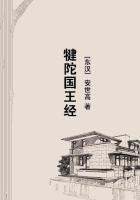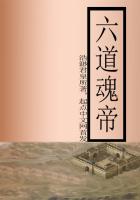The Marches saw it best in the tour of the elevated road in Berlin which they made in an impassioned memory of the elevated road in New York. The brick viaducts which carry this arch the Spree again and again in their course through and around the city, but with never quite such spectacular effects as our spidery tressels, achieve. The stations are pleasant, sometimes with lunch-counters and news-stands, but have not the comic-opera-chalet prettiness of ours, and are not so frequent. The road is not so smooth, the cars not so smooth-running or so swift. On the other hand they are comfortably cushioned, and they are never overcrowded. The line is at times above, at times below the houses, and at times on a level with them, alike in city and in suburbs. The train whirled out of thickly built districts, past the backs of the old houses, into outskirts thinly populated, with new houses springing up without order or continuity among the meadows and vegetable-gardens, and along the ready-made, elm-planted avenues, where wooden fences divided the vacant lots.
Everywhere the city was growing out over the country, in blocks and detached edifices of limestone, sandstone, red and yellow brick, larger or smaller, of no more uniformity than our suburban dwellings, but never of their ugliness or lawless offensiveness.
In an effort for the intimate life of the country March went two successive mornings for his breakfast to the Caf?Bauer, which has some admirable wall-printings, and is the chief caf?on Unter den Linden; but on both days there were more people in the paintings than out of them.
The second morning the waiter who took his order recognized him and asked, "Wie gestern?" and from this he argued an affectionate constancy in the Berliners, and a hospitable observance of the tastes of strangers.
At his bankers, on the other hand, the cashier scrutinized his signature and remarked that it did not look like the signature in his letter of credit, and then he inferred a suspicious mind in the moneyed classes of Prussia; as he had not been treated with such unkind doubt by Hebrew bankers anywhere, he made a mental note that the Jews were politer than the Christians in Germany. In starting for Potsdam he asked a traeger where the Potsdam train was and the man said, "Dat train dare," and in coming back he helped a fat old lady out of the car, and she thanked him in English. From these incidents, both occurring the same day in the same place, the inference of a widespread knowledge of our language in all classes of the population was inevitable.
In this obvious and easy manner he studied contemporary civilization in the capital. He even carried his researches farther, and went one rainy afternoon to an exhibition of modern pictures in a pavilion of the Thiergarten, where from the small attendance he inferred an indifference to the arts which he would not ascribe to the weather. One evening at a summer theatre where they gave the pantomime of the 'Puppenfee' and the operetta of 'Hansel and Gretel', he observed that the greater part of the audience was composed of nice plain young girls and children, and he noted that there was no sort of evening dress; from the large number of Americans present he imagined a numerous colony in Berlin, where they mast have an instinctive sense of their co-nationality, since one of them in the stress of getting his hat and overcoat when they all came out, confidently addressed him in English. But he took stock of his impressions with his wife, and they seemed to him so few, after all, that he could not resist a painful sense of isolation in the midst of the environment.
They made a Sunday excursion to the Zoological Gardens in the Thiergarten, with a large crowd of the lower classes, but though they had a great deal of trouble in getting there by the various kinds of horsecars and electric cars, they did not feel that they had got near to the popular life. They endeavored for some sense of Berlin society by driving home in a drosky, and on the way they passed rows of beautiful houses, in French and Italian taste, fronting the deep, damp green park from the Thiergartenstrasse, in which they were confident cultivated and delightful people lived; but they remained to the last with nothing but their unsupported conjecture.















